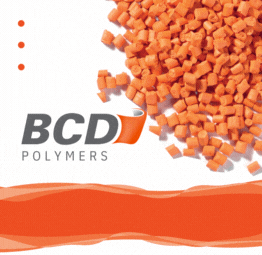The EU Commission plans to radically reorganise the European packaging market with its proposal for a new packaging regulation. This is the conclusion reached by IK Industrievereinigung Kunststoffverpackungen e.V. in a first statement.
"On the way to a European circular market economy, we welcome unified European rules for the design-for-recycling of packaging. They strengthen the circular economy and the EU internal market", comments IK managing director and circular economy expert Dr Isabell Schmidt on the present draft. "The Commission's thrust is also in line with our approach of using as much packaging as necessary and as little as possible. The requirement to minimise packaging and the promotion of reusable packaging offer opportunities for lightweight and material-efficient plastic packaging. However, the prerequisite is to overcome plastic bashing for a fair competition of materials."
IK, on the other hand, considers the proposed mandatory recycled content quotas for contact-sensitive plastic packaging to be problematic. It is true that quotas provide investment impulses for recycling, which is to be welcomed. But these cannot be met equally for all packaging.
"For contact-sensitive plastic packaging, such as food packaging, there are hardly any authorised recyclates today. Even chemical recycling will not be able to close this gap in the foreseeable future," notes Isabell Schmidt. "The industry fears supply bottlenecks for other segments as well. We therefore demand security of supply to prevent product bans and risks for supply chains. We are also concerned about the enormous bureaucratic burden on companies and the high level of monitoring required by the authorities. Without regulatory enforcement, the law would remain a toothless tiger and the honest man would be the fool in the market," says Isabell Schmidt.
For an initial assessment, IK comments on what it considers to be the particularly relevant points:
Design for recycling: By 2030, only recyclable packaging should be on the market. We welcome this very much. EU-wide unified criteria for design-for-recycling are an important element of regulation that has been demanded by the industry for a long time, not least to achieve economies of scale and to strengthen the circular market economy. Different collection and recycling paths in private and commercial waste streams have to be taken into account.
Mandatory recycled content quotas: These were conceived in order to guarantee the demand for recyclates and thus secure investments in recycling. However, the conditions for the use of recyclates are highly dependent on the packaging and the packaged product. In case recyclates ar not available (shortage of recyclates), there is a risk of a packaging ban through no fault of its producer, and a endangerment of the supply chains concerned. These risks must be hedged. We therefore advocate greater flexibility via certificates, for example. Those who cannot use recycled materials, or can only use a few could fulfil their obligation by acquiring certificates from companies that use more recyclates than required by law.
Authorisations for mechanically manufactured recyclates in contact with foodstuffs have so far only been granted for PET. Authorisations for other plastics are a long way off. Therefore, the use of recyclates for contact-sensitive packaging, first and foremost promotes energy-intensive thermo-chemical recycling, a technology that is still in the development stage and has yet to be ecologically evaluated. From the point of view of the IK, chemical recycling can close a gap in the circular economy in a sensible way, if it can be ensured that additional packaging that cannot be recycled mechanically is recovered.
Reduction of packaging by 15% and the minimisation imperative: Our principle is: as much packaging as necessary, as little as possible. Plastic packaging is an efficiency artist, as it already protects more than 60% of all consumer goods, but accounts for only 17% of the total packaging volume. Packaging that does not protect the product, but serve marketing purposes alone, will no longer be justifiable.
Bans: Bans on certain packaging formats, regardless of their recyclability, are the sharpest sword and should be introduced with caution, only in exceptional cases and by parliamentary law. Here, however, the draft leaves too much leeway for a subsequent extension of the list of bans. In addition, bans on plastic packaging often promote ecologically questionable alternatives. In this respect, we are particularly critical of the bans on certain types of plastic packaging.
Re-use quotas: Plastic is also convincing in reusable applications. These make sense if they are ecologically justified and not ideologically. In the current proposal, however, the basis of the re-use quotas is not comprehensible. For commercial and industrial transport packaging in particular, it is already ensured that they are either reused or recycled to make new transport packaging. Furthermore, the re-use requirements should be material-neutral and not exclude single-use cardboard packaging.
Deposit system for beverage bottles: Thanks to the established deposit system for PET beverage bottles, Germany is already far ahead regarding recycling and the use of recycled materials. The mandatory introduction of such systems throughout the EU is to be welcomed and will increase the much-needed quantities of PET recyclates.
Unitary labelling: Harmonised labelling requirements are a long overdue idea. Through uniform labelling of packaging material and the appropriate waste container, waste separation should be child's play.
Financial incentives to promote the circular economy: Financial incentive systems strengthen a functioning circular market economy. We advocate that financial support is for all packaging based on recyclability, including plastic packaging. The recyclability of packaging is and remains the essential prerequisite of the circular economy and must be promoted as such.
Regulation instead of directive: Uniformity simplifies the markets, enables economies of scale and thus increases the economic efficiency of an ecological transformation of the packaging market. However, due to the level of detail and the many implementing and delegated acts, we see the danger of overregulation without control of enforcement ("bureaucratic monster"). The enforcement by the authorities must be facilitated so that the regulation does not become a paper tiger and fair competition prevails.


